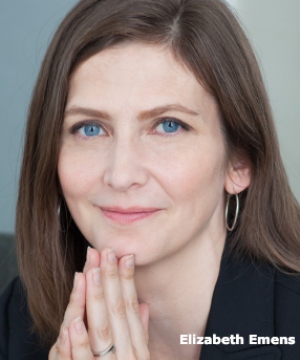The Sound of Silence
Begun in January and continuing through the summer, the weekly sessions are spearheaded by Elizabeth Emens, a Isidor and Seville Sulzbacher Professor of Law, and a group of other faculty who have been meditating together in recent years. “A number of reflective practices, including mindful meditation, can help law students and lawyers do their work better and live their lives better, whether they are in a leadership position or at a low period and facing challenges and need tools for resilience,” says Emens. “Research show that mindfulness helps with emotional self regulation, intentional focus, and our reactions to other people that we find challenging.”
As part of the effort to expand awareness of the mindfulness meditation movement at the Law School, world renowned meditation teacher Sharon Salzberg has been invited to give a talk entitled “Fierce Compassion: Mindfulness for Challenging Times” at 6:30 p.m. on Tuesday, March 7, in Case Lounge. As the author of The New York Times best-seller Real Happiness and the co-founder of the eminent Insight Meditation Society in Barre, Massachusetts, Salzberg has lectured around the globe and appeared on panels with Nobel Peace Prize recipients José Ramos-Horta and the Dalai Lama. Salzberg will lead a short meditation and engage the audience in a discussion of the value of mindfulness in difficult times. (The event is open to the public, though seating is limited, so those who are interested should RSVP here.)
Already, the weekly noontime group meditations have been attracting dozens of members of the Law School community.
Caroline Voldstad ’18, the president of the Columbia Law School Yoga Club and vice chair of the national Mindfulness in Law Society, led a recent session. After sounding a small gong three times, Voldstad guided the group through a 10-minute traditional silent seated meditation and then a 10-minute “loving kindness” meditation. As everyone closed their eyes, she softly intoned the day’s mantra: “May I be happy. May I be healthy. May I be safe. May I live with ease.” She then asked everyone to silently repeat a variation—“May you be happy. May you be healthy. May you be safe. May you live with ease.”—while sequentially thinking of someone they consider a benefactor; someone they know in need; someone they don’t know well; and someone they have had difficulties with. Afterwards, she and Emens led a discussion about how the meditations made the participants feel.
Emens admits that she was initially skeptical about the efficacy of mindfulness meditation when she began practicing it a decade ago. “I was worried that it would make me more passive and less concerned about things in the world, but it’s increased my capacity to face what is real because I am not so afraid of it,” she says.
Besides organizing the weekly Wednesday sessions (along with Voldstad, staff member Anna Krauthamer, and professors Kathryn Judge, Carol Liebman, Barbara Schatz, Susan Sturm, and Peter Strauss), Emens is teaching a new seminar this semester entitled Law, Justice and Reflective Practice. It includes units on the restorative justice movement and alternatives to incarceration; mediation and alternative dispute resolution; and discrimination and bias, which is one of her areas of scholarship. “When our emotions like fear and anger are activated, we are more likely to categorize people and respond in hostile rather than understanding ways,” she says. “Some promising new research suggests that mindfulness meditation can help reduce bias on the basis of race and disability.”
The mindfulness meditation offerings could not be timelier. “A lot of us are struggling with this political moment, which is deeply about law and justice, and wondering what we can do in our professional and personal lives,” she says. “In difficult times, it can be so hard to engage with the news—people either feel flooded or they feel resistant like they have to hide. Hopefully, mindfulness meditation gives them tools to manage their emotions so they can engage but still titrate their relationship to the events happening in the world or their law practice, rather than spinning their wheels.”
Want to try adopting mindfulness? Here are three tips:
- Download apps such as Headspace or 10% Happier, which was created by Dan Harris, the co-anchor of ABC News’ Nightline, and includes teachings by Sharon Salzberg and Joseph Goldstein, the co-founders of the Insight Meditation Society in Barre, Massachusetts. These apps explain how to start a meditation practice and offer brief guided meditations.
- Make meditation a daily habit. “I use the tooth-brushing metaphor,” says Caroline Voldstad. “I do it every morning for 10 minutes before checking my texts and emails.”
- Consciously add pauses to your life. When you are feeling stressed or traveling to your next class or meeting, take a few deep breaths or notice the feeling of your feet on the ground. It may help to relax your mind and your body and make you more prepared to face whatever comes next.
Related:
How Mindfulness Enhances A Legal Career
###
Posted on March 3, 2017
